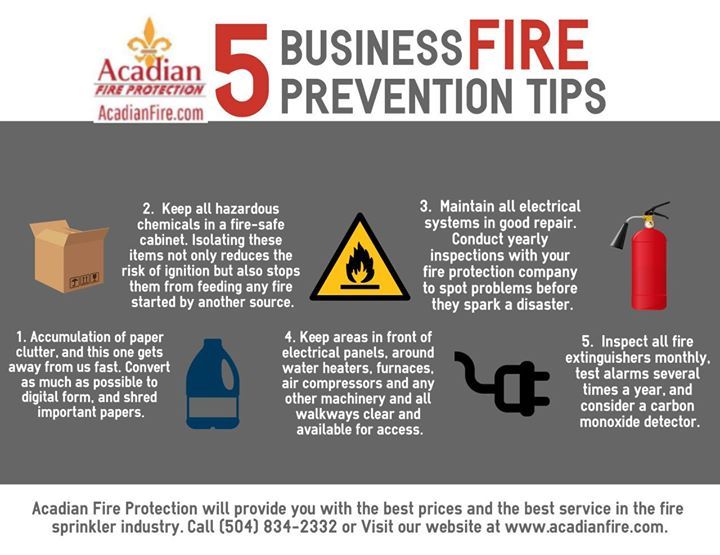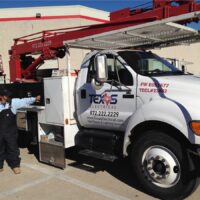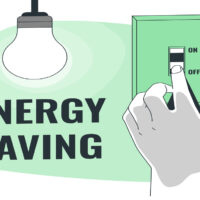Ensure electrical fire protection by installing smoke detectors and using fire-resistant materials. Regularly inspect and maintain your electrical systems to prevent hazards.
Electrical fires pose a significant risk in homes and businesses, but they can be prevented with proper precautions. Smoke detectors are essential for early fire detection, providing critical time for evacuation. Equally important is the use of fire-resistant materials in construction and electrical fixtures which can slow the spread of fire and reduce damage.
Given the complexity of electrical systems, routine inspections and maintenance conducted by licensed professionals are crucial for identifying potential problems before they lead to disaster. Homeowners should also be aware of their electrical usage, avoiding overloading circuits and using extension cords sparingly. With these measures in place, individuals can significantly reduce the likelihood of electrical fires and enhance the safety of their living and working environments.
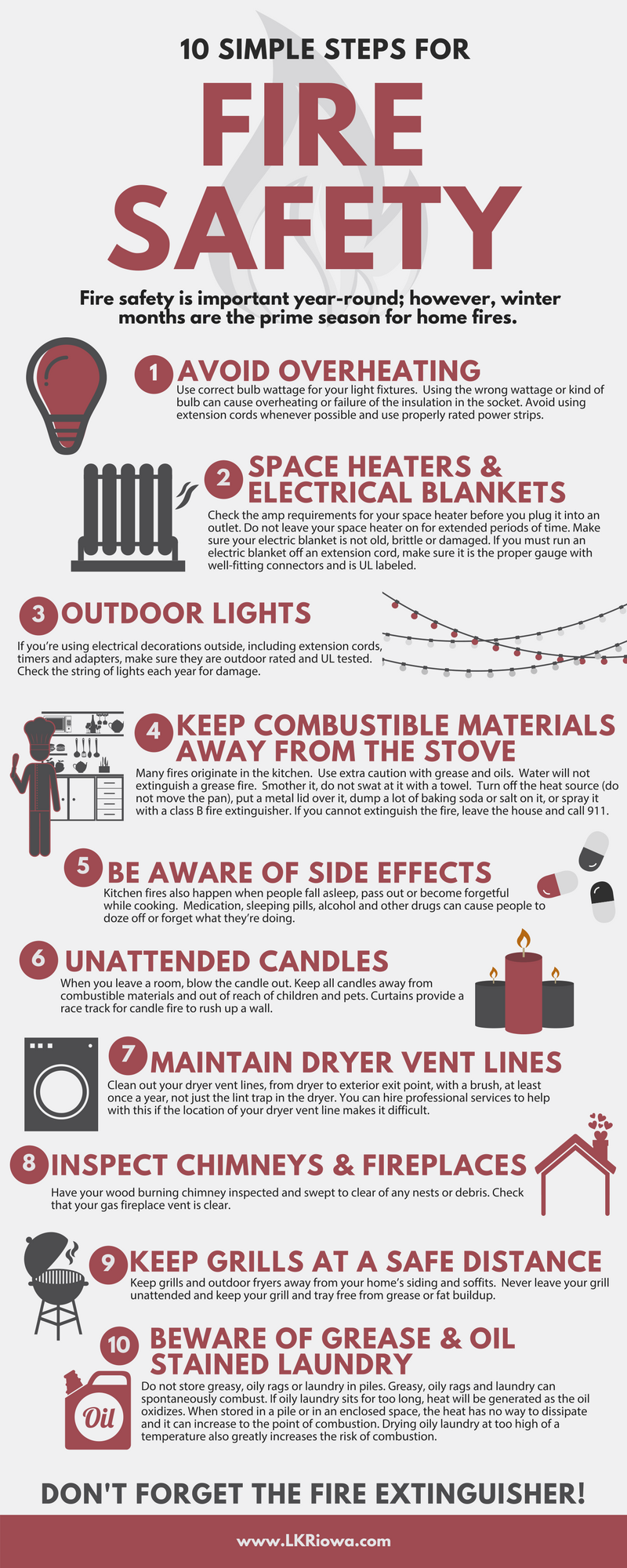
Credit: lepickroeger.com
Electrical Fire Risks At Home
Keeping your home safe from electrical fires requires knowledge and attention. Understanding the risks is crucial for maintaining a secure living environment. Let’s dive into the common causes and the warning signs of electrical fires, so you can keep your home and family safe.
Common Causes Of Electrical Fires
Electrical fires stem from various sources. Short circuits and overloaded power outlets top this list. Quality of wiring matters. Modern homes should update old wires. Always check electrical appliances. They can start fires if not used or maintained properly.
- Worn out wires and cables: Replace if damaged.
- Outdated electrical systems: Consider upgrades.
- Overloaded circuits: Avoid using multiple high-wattage devices on one outlet.
- Improper use of extension cords: Use them only as a temporary solution.
- Unattended heating devices: Keep a watchful eye on space heaters and irons.
Identifying Warning Signs
Early detection of warning signs can prevent disaster. Being vigilant lessens potential fire risks. Pay attention to your home’s electrical system. Notice odd behaviors from outlets or appliances? Act fast. Below are the signs to watch out for:
| Sign | Immediate Action |
|---|---|
| Flickering lights | Inspect the fixture and connections |
| Charred outlets | Stop usage and seek professional help |
| Strange smells | Turn off power and investigate the source |
Frequent circuit breaker trips and warm or hot outlets are also red flags. These may indicate a faulty device or an overload. Secure your home by contacting a certified electrician when you spot these signs.
“` This HTML content creates an easy-to-digest format for a blog post about electrical fire risks at home with a focus on the common causes and warning signs. It uses bullet points and a table for clarity, with keywords and critical tidbits of information in bold, creating an educational yet engaging experience for readers of all ages.
The Importance Of Regular Inspections
Keeping homes safe from electrical fires starts with regular inspections. Over time, wiring and electrical systems age. Regular inspections catch hazards early. They ensure everything meets national safety standards. Homeowners gain peace of mind. Prevention is always better than dealing with a disaster.
Benefits Of Professional Audits
- Spot Potential Hazards: Experts find risks before they cause harm.
- Maintenance Recommendations: Get tips on keeping systems safe.
- Insurance Compliance: Some insurers need proof of inspection.
- Boost Property Value: A safe electrical system adds to your home’s worth.
What To Expect During An Inspection
Wondering about the inspection process? Here’s a quick overview:
- Visual Examination: Inspectors first assess visible parts.
- Testing Equipment: They use tools to check for hidden issues.
- Report Generation: You get a detailed report after the check.
Qualified professionals perform these steps. They ensure your electrical systems are secure.
Safe Installation And Upkeep
Safety begins with how we handle electricity. Safe Installation and Upkeep are the pillars of electrical fire protection. Let’s dive into steps to ensure our homes are free from electrical fire hazards.
Choosing Qualified Electricians
Hiring the right professional is crucial. A skilled electrician not only installs but also ensures the electrical system is up to code. Below is a checklist for selecting an electrician:
- Check for Licenses: Make sure the electrician is licensed. Licenses reflect proper training.
- Read Reviews: Look for positive feedback from previous clients.
- Ask for Certifications: These provide evidence of their ability and knowledge.
Engage only electricians who pass these criteria. This reduces the risk of electrical issues.
Maintaining Appliances And Outlets
Regular maintenance is vital for electrical safety. Here’s how to do it:
| Appliance/Outlet Maintenance Action | Frequency |
|---|---|
| Test Smoke Detectors | Monthly |
| Inspect Power Cords | Annually |
| Clean Exhaust Fans | Bi-annually |
| Examine Outlets for Damage | Bi-annually |
All appliances and outlets require attention to keep them safe. Use the table as a guide. Remember, damaged wires and overloaded circuits are potential fire sources.
Proper Use Of Electrical Devices
Electrical devices play a vital role in our daily lives. Yet, improper use raises the risk of electrical fires. By following key safety practices, we can enjoy the conveniences of these devices without compromising our safety.
Avoiding Overloading Circuits
Overloading an electrical circuit is a common mistake with serious repercussions. It happens when too much power is drawn from a single source, leading to overheating and sometimes fire. To prevent this, adhere to the following:
- Understand the capacity of your home’s electrical system.
- Limit the number of high-wattage devices plugged into one outlet or circuit.
- Consider having a professional electrician increase your home’s electrical capacity.
Extension Cord Safety
Extension cords are a temporary solution for supplying power to electrical devices. To use them safely:
- Inspect cords for damage before use.
- Do not daisy-chain extension cords together.
- Avoid running extension cords under carpets to prevent overheating.
- Choose the correct rating for the device you intend to power.
- Unplug extension cords when not in use.
Safety should always be a priority with electrical devices. Remember these tips and keep your home safe from electrical fire hazards.
Investing In Circuit Protection
Protecting a home or business from electrical fires starts with smart investments in circuit protection. Circuit protection devices are vital for safeguarding electrical circuits from damage caused by overloads, short circuits, and electrical faults. These protective measures not only keep the property safe but also prevent costly damage to appliances and electronics. Let’s explore the options available to maintain a safe electrical system.
Types Of Circuit Breakers
Circuit breakers are the first line of defense in electrical fire protection. They safely cut off power to prevent overheating and potential fires. Different types include:
- Standard Circuit Breakers: Protect against overcurrent by automatically switching off the electrical flow.
- Ground Fault Circuit Interrupters (GFCIs): Shut off electric power when a ground fault is detected, mainly used in wet areas like bathrooms.
- Arc Fault Circuit Interrupters (AFCIs): Prevent fires by detecting and stopping electrical arcs that occur when electricity jumps between damaged wires.
Surge Protectors Vs. Gfcis
It’s essential to understand the difference between surge protectors and GFCIs, as they serve different protective roles:
| Surge Protectors | GFCIs |
|---|---|
| Shield electronic devices from voltage spikes. | Monitor the balance of electrical current and cut off power if a ground fault is detected. |
| Commonly used for computers, TVs, and home theaters. | Required in areas with water exposure like kitchens and bathrooms. |
Choosing the right circuit protection is vital.
Surge protectors play a critical role in protecting electronic devices from sudden surges in electrical power that can cause severe damage.
In contrast, GFCIs are necessary for preventing electric shock and are a must-have in any area prone to moisture.

Credit: www.facebook.com
Fire-resistant Materials And Construction
Talking about Fire-Resistant Materials and Construction is vital for safety in our homes and workplaces. Protecting a building from fire starts with choosing the right materials. It also means updating what is already built. Let’s explore how the right choices can make spaces safer.
Selecting the Right Building MaterialsSelecting The Right Building Materials
The materials used in construction play a key role in fire protection. Using fire-resistant materials can slow down or prevent the spread of fire. This allows more time for people to escape and for firefighters to do their job. Here’s what to consider:
- Gypsum: This is a fire-resistant mineral used in drywall. It does not burn easily.
- Concrete: Known for its strength, it’s also fire-resistant. Concrete is a smart choice for many building elements.
- Bricks: Bricks are non-combustible and can withstand high temperatures.
- Glass: Some glass types, like wired glass, hold up well in a fire.
Choosing these materials can add layers of protection. Make sure to consult with experts. They can help pick the best options for your building.
Updating Older Wiring SystemsUpdating Older Wiring Systems
Older buildings may have outdated wiring systems. This can be a major risk. Older wires can overheat and cause a fire. Here are steps to update old systems:
- Hire a licensed electrician. They can inspect and assess your wiring.
- Plan for regular maintenance. This helps catch issues before they become dangerous.
- Replace old wires with newer, fire-resistant ones.
- AFCIs (Arc Fault Circuit Interrupters) can be installed. They shut off power if a dangerous condition arises.
Keep your building safe by staying ahead. Regular updates to wiring systems are a must.
Emergency Preparedness
Emergency Preparedness is crucial for electrical fire protection. Fires from electrical sources are sudden and dangerous. They can happen without warning. It’s important to prepare ahead of time. This ensures safety for everyone involved.
In this section, we explore necessary steps to prepare for such emergencies. We’ll look at evacuation plans. We’ll touch on the importance of fire extinguishers and smoke detectors.
Creating An Evacuation Plan
An evacuation plan is a must-have in every home and office. This plan should be clear and accessible to all. Here is how to create an effective evacuation plan:
- Map Out Exits: Sketch a layout of the building. Mark all the exits.
- Designate a Meeting Spot: Pick a safe location outside where everyone meets after evacuating.
- Practice Regularly: Conduct evacuation drills to ensure everyone knows the plan well.
- Keep Pathways Clear: Ensure escape routes are free of clutter.
- Post the Plan: Place the plan in common areas for everyone to see.
Fire Extinguishers And Smoke Detectors
Fire extinguishers and smoke detectors save lives. They should be part of every emergency plan. Follow these tips to use them effectively:
| Device | Location | Maintenance |
|---|---|---|
| Smoke Detectors | Install on every floor and near bedrooms. | Test monthly. Replace batteries yearly. |
| Fire Extinguishers | Place in kitchen and near electrical equipment. | Check pressure monthly. Replace every 5 to 10 years. |
Remember, early detection of a fire can make a big difference. Proper use of fire extinguishers can stop fires from spreading. Make sure you learn how to use an extinguisher before an emergency occurs.
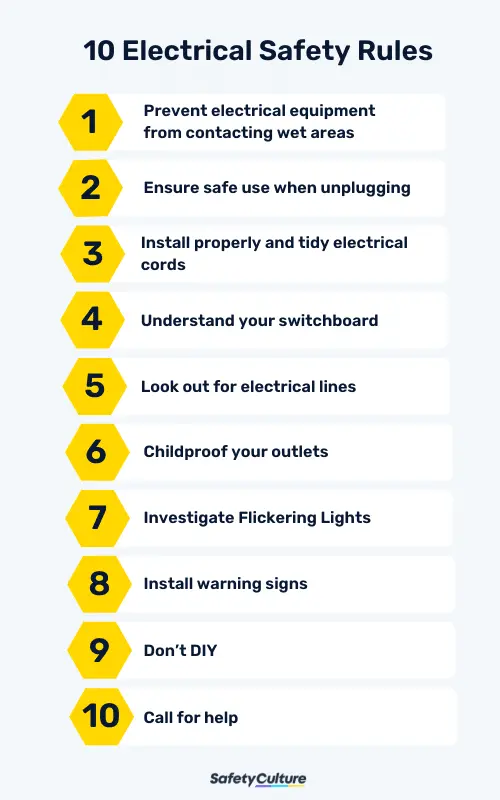
Credit: safetyculture.com
Educating Households On Safety
Ensuring electrical fire protection starts at home. It involves more than just equipment and alarms. Education plays a crucial role in keeping everyone safe. Here, we’ll explore how to train your family and deal with common electrical issues.
Training Family Members
Teach every member of your household about electrical fire safety. Start with the basics:
- Identify signs of faulty wiring like flickering lights or strange odors.
- Show them how to use fire extinguishers.
- Ensure they know what to do in an emergency.
Run regular fire drills to practice escape routes. Place emergency numbers in a visible area.
Handling Minor Electrical Issues
Tackle small electrical problems before they escalate. Educate your family on these steps:
| Problem | Solution |
|---|---|
| Loose Outlet | Turn off power and tighten. |
| Worn Cords | Replace or repair them. |
| Overloaded Circuits | Unplug unnecessary devices. |
For any issue, turn off the power at the breaker first. When in doubt, call a professional electrician.
Frequently Asked Questions Of How To Ensure Electrical Fire Protection
What Is Electrical Fire Protection?
Electrical fire protection involves measures to prevent fires caused by electrical systems. This includes using proper wiring, regular inspections, and safe appliance usage. Implementing these practices can reduce fire risks significantly.
How Often Should Electrical Systems Be Inspected?
Electrical systems should be inspected at least once every five years by a qualified electrician. Regular inspections can identify potential hazards before they cause a fire. However, high-risk environments may require more frequent checks.
Can Circuit Breakers Prevent Electrical Fires?
Yes, circuit breakers are designed to prevent electrical fires by automatically cutting off power when a circuit overloads or shorts. They are essential components for home and workplace electrical safety.
What Are Signs Of Electrical Fire Risk?
Signs of electrical fire risk include frequent breaker trips, unusual burning smells, discolored outlets, and sparking. If you observe these signs, contact a professional immediately to prevent potential fires.
Conclusion
Securing your home against electrical fires demands attention and action. Implement regular maintenance checks and adhere to safety standards. Empower yourself with knowledge of proper appliance usage. Remember, prevention is paramount for safety. Making these efforts will safeguard your space from potential electrical hazards.

